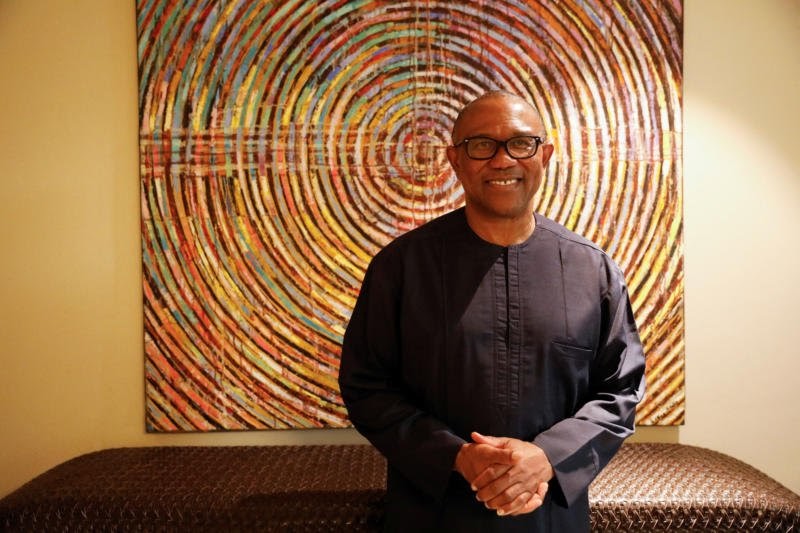Peter Obi is hardly an outsider in politics, but the bespectacled former governor claims he wants to use Nigerians' discontent with the status quo to fuel his third-party presidential campaign.
The president and both major-party candidates for the February 2023 election are septuagenarian political veterans, but Obi, 61, has attracted a lot of attention from younger voters in Africa's most populous democracy, where the average age is 18.
His supporters, who refer to themselves as "Obi-dients," assert that he is capable of resolving Nigeria's problems, including the country's unprecedented levels of insecurity, large-scale oil theft, and allegations of pervasive corruption eight years after President Muhammadu Buhari took office on a platform of eradicating it.
Nigerian electoral law forbids candidates from campaigning before Sept. 28. In a recent interview at his Lagos residence, Obi, speaking as a private citizen, said Nigeria’s problems could turn voters against the two dominant parties, the ruling All Progressives Congress (APC) and opposition People’s Democratic Party (PDP).
“The system they’ve operated over the years, it has brought us to where we are,” Obi told Reuters.
Bola Tinubu, 70, is the APC candidate and Atiku Abubakar, 75, is running for the opposition PDP. read more
Many of Obi’s backers were also prominent in 2020 protests against police brutality that ended with security forces opening fire on unarmed demonstrators, leaving them particularly keen to oust older leaders.
Young people accounted for half of voters in 2019, and 84% of the 10.49 million recently registered voters were aged 34 and below. read more
‘WE WILL BREAK ALL OF IT’
Obi was Atiku’s running mate in 2019, but said he lost faith in the nomination process. He is now running with the Labour Party, one of 18 registered political parties.Dressed in a tailored-but-casual blue “senator style” suit and sandals, Obi said that voters in a nation “on the brink” would eschew religious, ethnic and tribal loyalties that typically help the major parties dominate elections.
“What is important is that people trust,” he said, adding: “It is simple. You may not like me. But what I’m coming here to do will be different.”
Still, as a political veteran himself, Obi has attracted his share of controversy in the past.
Assets he controlled appeared in the Pandora Papers leaks, and during the 2019 campaign he and Atiku were challenged on their track records regarding corruption and investing government funds in private businesses, some of which they owned shares in, while in public office. Both denied any allegations of graft, and Obi said the Pandora Papers accounts were part of legal and legitimate asset management.
Now Obi says he is happy to stand on his record as governor of southeastern Anambra state, which left a rare budget surplus.
His gubernatorial tenure, he added, showed that he was unafraid of angering powerful interests to help the nation, and was more important to voters than his Christian faith or identity as an Igbo – an ethnic group where some members agitate for a breakaway nation.
“We will break all of it to make it work,” he said.
Obi said he is finalising specifics of his platform – such as how he would handle the tightly controlled naira currency or deal crippling fuel subsidies.
But he said he would renegotiate debt, extricate the government from the economy and enable the private sector to thrive.
“The young ones want to see a country with a future,” he said. “My job is to take the country and give it to them.”



